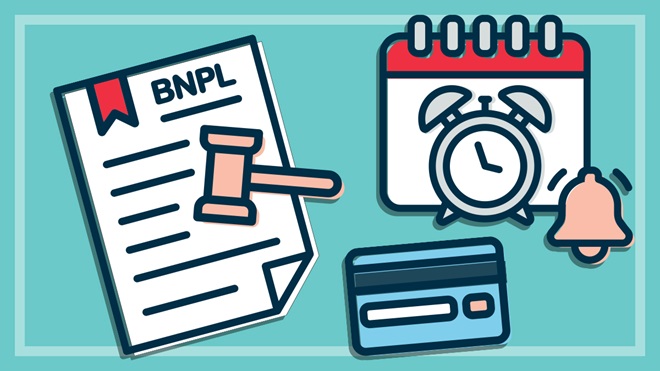Associate Professor Angel Zhong is a passionate RMIT finance researcher who specialises in empirical asset pricing, financial wellbeing and investor behaviour in financial markets.
Need to know
- BNPL products are currently not regulated under the Credit Act because they do not charge interest, but customers can instead be charged late fees which can create debt traps
- Many people are sold multiple BNPL accounts and because each has their own jargon and terms, consumers can easily become confused by the possible costs that could be incurred
- Full regulation of BNPL loans under the Credit Act is the way forward
The buy now, pay later (BNPL) sector has grown dramatically in recent years. The Australian Securities and Investment Commission (ASIC) reports that the total value of all BNPL transactions increased by 79% in the 2018–19 financial year, which continues into 2022 with an annual growth beyond 30% according to the Reserve Bank of Australia (RBA).
Intense competition in the industry brings a large variety of choices and deals to consumers. However, a larger variety of choices also comes with hidden risks, as consumers are able to sign up for more than 10 unregulated credit products.
The hidden risks of BNPL
While BNPL services seem to offer flexible options to pay for purchases, the hidden risks may well outweigh the benefits they bring. A major concern about BNPL loans is that they lure consumers to overspend and buy things that they would not have usually purchased or been able to afford.
The business model makes it hard for consumers to keep track of the total costs of purchases made using BNPL services. As the birthplace of large-scale BNPL products, Australian consumers are being sold multiple BNPL loans. This makes it easy for consumers to accumulate debt.
The business model makes it hard for consumers to keep track of the total costs of purchases made using BNPL services
BNPL providers label their interest-free payments as a unique selling point, but there is never a free lunch. Instalments are interest-free but late payments attract fees. According to ASIC's report on the BNPL industry in November 2020, 21% of consumers missed payments.
BNPL providers have their own jargon for account fees, payment schedules, refund policies, and late payment fees. Consumers who are sold a wide range of BNPL loans at the same time could be easily confused by their differences and the costs that could be incurred.
How should BNPL be regulated?
The full regulation of BNPL loans under the Credit Act is the way forward. BNPL should be regulated similarly to other credit products.
No matter how you distinguish their fee structure or payment features from other credit products, consumers use BNPL to obtain 'credit', which is provided if 'one person incurs a deferred debt to another', according to the National Credit Code. Obtaining credit via BNPL will accumulate 'debt', which is "money owed to someone else" in the dictionary.
Financial innovations should not be an excuse to compromise the financial wellbeing of our community.
For decades, credit services have been available, but BNPL providers transformed the market by utilising digital technology to simplify the sign-up process to enable almost instantaneous approvals and generate revenue by imposing a transaction surcharge on merchants and late fees on customers. BNPL firms do not charge interest payments, which exempts them from the same regulations under the National Credit Code that other credit providers like Visa or Mastercard must follow.
Financial innovations should not be an excuse to compromise the financial wellbeing of our community
The current regulatory debate over BNPL loans is not new. When credit cards were first introduced, there were few regulations in place to protect consumers, which led to widespread consumer harm, such as high interest rates, hidden fees and aggressive marketing tactics.
As a result, regulations were introduced and fine-tuned over the years to safeguard the financial wellbeing of consumers and ensure that credit card providers act responsibly. For example, credit card providers are now required to disclose their interest rates, fees and charges upfront, and they must adhere to strict rules on how they advertise their products and services. As a new beast in the world of fintech, it is critical to have BNPL regulations in place to protect consumers.
We're on your side
For more than 60 years, we've been making a difference for Australian consumers. In that time, we've never taken ads or sponsorship.
Instead we're funded by members who value expert reviews and independent product testing.
With no self-interest behind our advice, you don't just buy smarter, you get the answers that you need.
You know without hesitation what's safe for you and your family.
And you'll never be alone when something goes wrong or a business treats you unfairly.
Learn more about CHOICE membership today
Stock images: Getty, unless otherwise stated.



